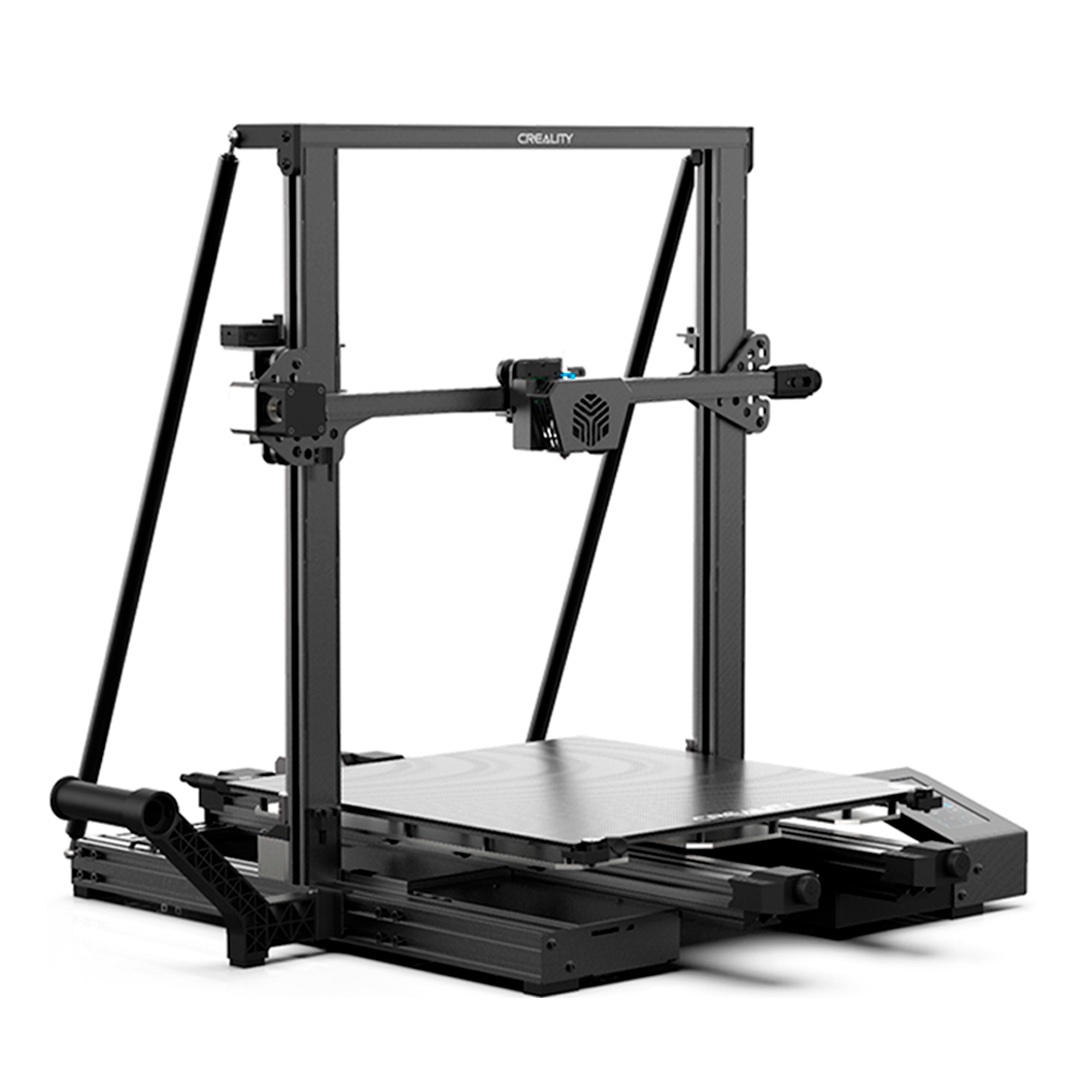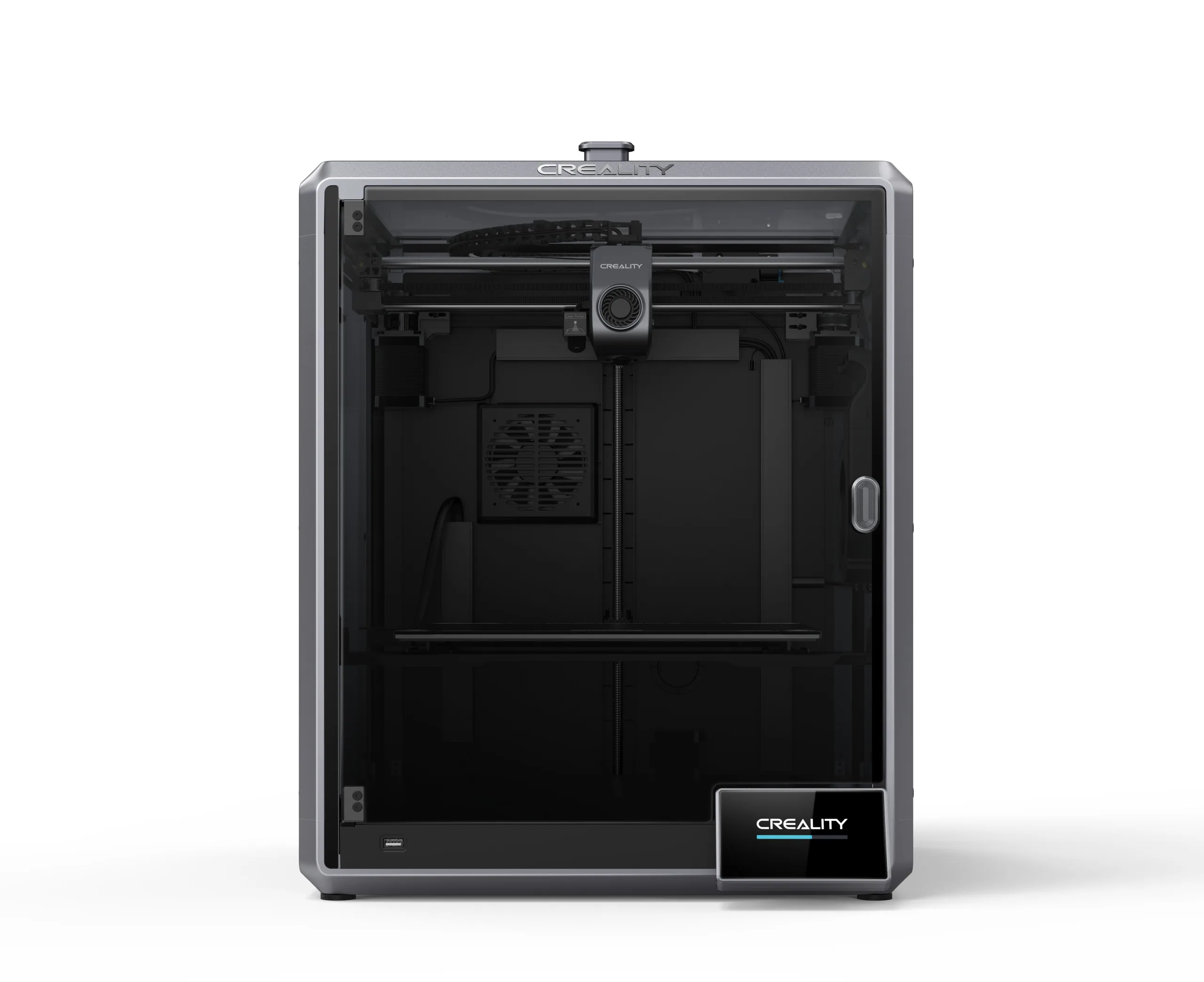Compare CR 6 Max vs K1 Max
Comparison between the best 3D printers
Choose the best 3D printer at the best price. The cheapest 3D printers are here.
Buy a 3D printer here with 3D Fila.
 |
 |
|
| Model | CR 6 Max |
K1 Max[BUY K1 Max] |
| Printing Material | Filament | Filament |
| Buy Filament for Creality 3D CR 6 Max | Buy Filament forCreality 3D K1 Max | |
| Estimated price | $700,00 | $1300,00 |
| Manufacturer | Creality 3D | Creality 3D |
| Release Year | 2021 | 2023 |
| Print Volume [mm] | 400x400x400 | 300x300x300 |
| Printer Size [mm] | 725x640x691 | 435x462x526 |
| Weight [kg] | 14 | 18 |
| Power Loss Recovery | YES | YES |
| Enclosed printer | NO | YES |
| Bed Leveling | Automatic | Automatic |
| Filament End Sensor | YES | YES |
| Bed type | Heated | Heated |
| Power supply system | Bowden | Direct Drive |
| Standard nozzle | 0,4 | 0,4 |
| Maximum Nozzle Temperature [°C] | 260 | 300 |
| Maximum Bed Temperature [°C] | 90 | 100 |
| Maximum printing speed [mm/s] | 100 | 600 |
| Filament holder | YES | YES |
| Camera for supervision | NO | NO |
| Recommended filaments | PLA, PETG | ABS, PLA, PETG, TPU, PA, ASA, PC, PLA-CF, PA-CF, PET-CF |
| Recommended slicers | Cura, Simplify, Slic3r, IdeaMaker | Creality Print, Cura, Simplify, Slic3r, IdeaMaker e outros |
| Maximum Resolution [mm] | 0,1 | 0,1 |
| Processor | ||
| Display | Display touchscreen 4,3'' | Display touchscreen 4,3'' |
| Power Supply | 110/220V / 500W | |
| Connectivity | SD / USB | USB / Wi-Fi / Ethernet |
| Operating systems | Windows, Mac, Linux | Windows, Mac, Linux |
| Date of registration in the system | 2022-11-04 | 2023-12-01 |
| Release date | 2021 | 2023 |
| Extra features | Crealitys CR-6 Max printer offers a large 400 x 400 x 400mm build area, perfect for larger projects without dividers. Its auto-leveling system and force sensor simplify setup. It has a 4.3-inch touchscreen and convenient features like a tool drawer and filament holder. Plus, its modular hotend, redesigned extruder, and silicon carbide-coated build plate improve print quality. | The Creality K1 Max stands out as a fast Core XY 3D printer with a large build volume of 300 x 300 x 300 mm. It is fully enclosed and equipped with AI sensors to prevent print failures. This model has a smooth and flexible PEI build platform, and uses an automatic leveling system with LIDAR, as well as a filament run-out sensor. LAN, Creality Cloud and USB Flash Disk connectivity are available, as well as a 4.3-inch touchscreen interface. The K1 Max is robust, weighing in at 18 kg, and includes an AI camera and limited version of the Klipper firmware. Its motion system is solid and the printer is efficient with high-temperature filaments, but it is not silent. Assembly is 99% complete, requiring only minor adjustments before use. |
| Support for multiple colors and materials (AMS and CFS) | NO | NO |
Notes * |
||
| Cost-benefit | 6 / 10 | 7 / 10 |
| Hardware | 2 / 10 | 4.2 / 10 |
| Tela | . | . |
| Print volume | 4 / 10 | 4 / 10 |
| Performance | 1 / 10 | 5 / 10 |
| [BUY K1 Max] |
Conclusion |
| In comparing the Creality 3D CR 6 Max and the Creality 3D K1 Max, several factors emerge that can guide potential buyers in making an informed decision. **Price and Value:** The CR 6 Max is positioned as a budget-friendly option, making it an attractive choice for hobbyists or those new to 3D printing. In contrast, the K1 Max, with its higher price tag, targets users who are looking for advanced features and performance enhancements, justifying the investment for professional applications or serious enthusiasts. **Build Volume and Dimensions:** The CR 6 Max offers a larger print volume of 400x400x400 mm, appealing to users needing to create larger models. While the K1 Max has a smaller volume of 300x300x300 mm, it is designed to deliver high-speed performance and reliability, which can be more beneficial for those prioritizing efficiency. **Technology and Features:** Both models come equipped with automatic bed leveling and power loss recovery, but the K1 Max's enclosed design and advanced AI sensor technology may allow for better results with a wider variety of filaments, particularly high-temperature materials. Additionally, the K1 Max supports enhanced connectivity options, such as Wi-Fi and Ethernet, which can be crucial in a modern workflow. **Performance and Speed:** The K1 Max outshines the CR 6 Max with its significantly higher maximum printing speed, making it suitable for rapid prototyping. This advantage, coupled with its stable motion system, makes it a compelling choice for users who need to produce high-quality prints quickly. **User Experience:** While both printers feature a touchscreen interface and user-friendly features, the K1 Max's additional tools—such as AI monitoring capabilities—might enhance oversight during printing, reducing the chances of errors and wastage. In conclusion, the choice between the CR 6 Max and K1 Max largely depends on user needs and budget. The CR 6 Max is ideal for those starting in 3D printing or those requiring a larger build volume at a lower cost. In contrast, the K1 Max is better suited for experienced users who prioritize speed, advanced features, and enhanced material compatibility, making it a worthy investment for serious projects. Ultimately, each printer has its unique strengths that cater to different segments of the 3D printing community. |

